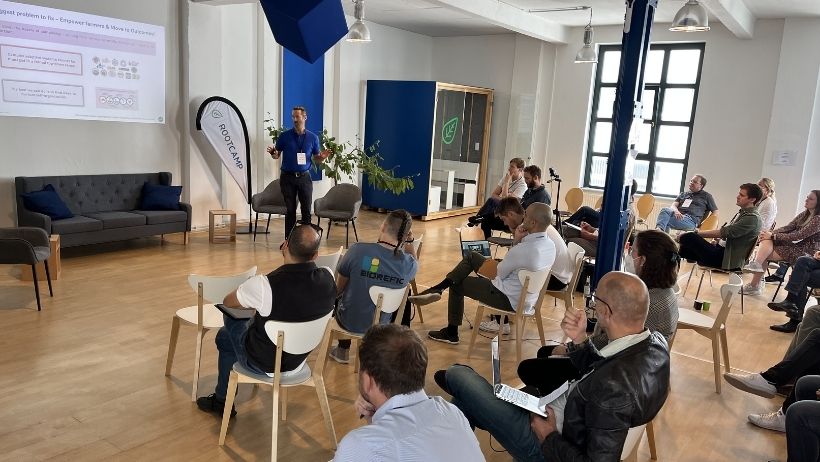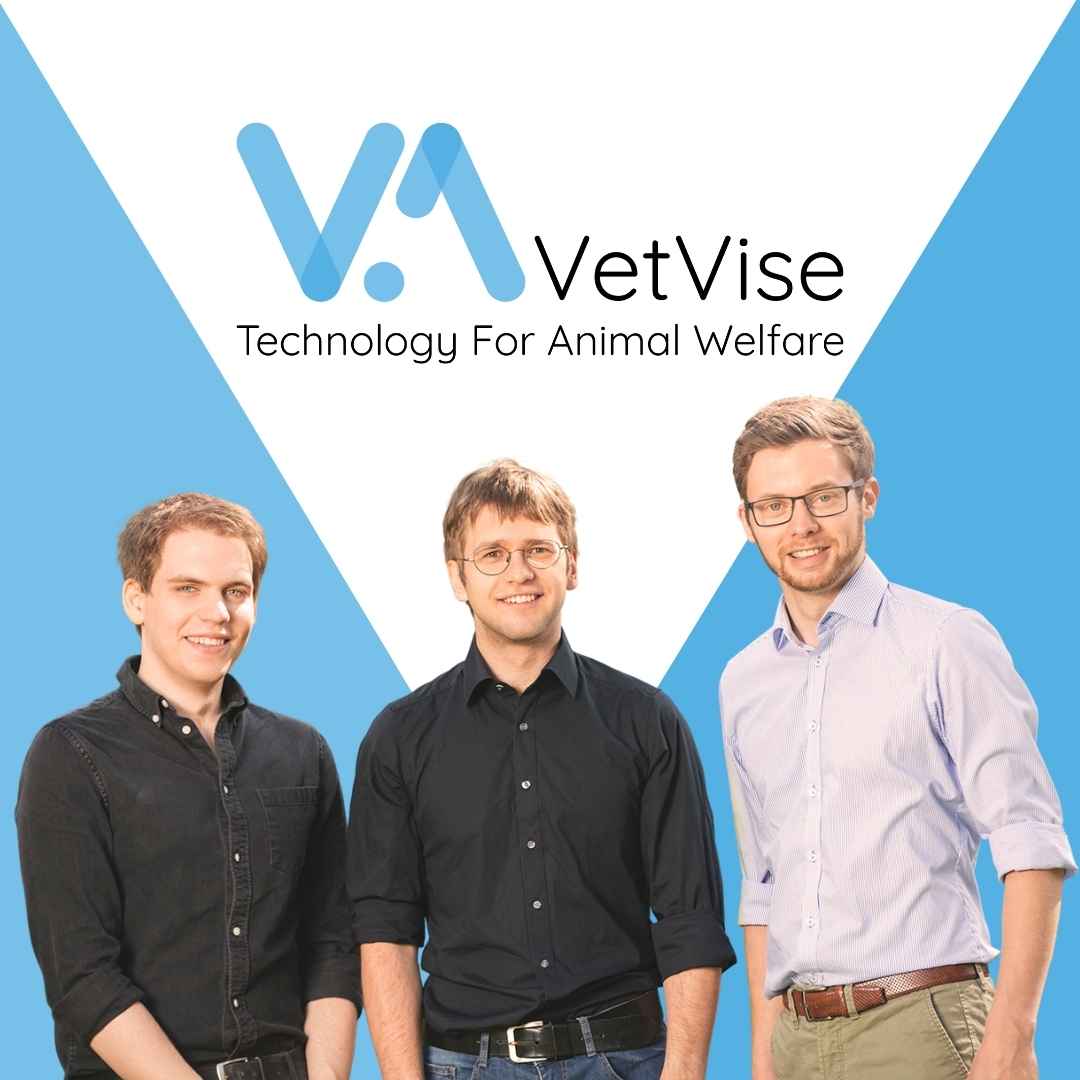The global livestock sector contributes to a significant share of anthropogenic greenhouse gas emissions, and efforts to reduce the sector’s emissions and its environmental footprint have accelerated. Technologies and practices that help reduce emissions exist, and their adoption and use by the majority of the world’s producers can significantly mitigate the impact of climate change. In addition, the European Commission through the Green Deal has set a series of targets including the no net emissions of greenhouse gases by 2050, helping companies to become world leaders in clean products and technologies, and supporting economic growth decoupled from resource use. But what does it mean in practice? How is the national or European regulatory framework shaping climate-smart livestock?
These questions were discussed by Gereon Schulze Althoff from Tönnies Group, Paul Costello from Costello Farming and Grasmilch Brandenburg and Mauricio Agudelo from Bialtec during the virtual expert talk “Towards climate-smart livestock” organized by RootCamp, as part of the EU-funded BLIVE project.
/BLIVE%20expert%20talk.jpg?width=1200&name=BLIVE%20expert%20talk.jpg)
How companies and startups are boosting the livesector
Gereon Schulze recognized that producing food is also producing emissions. However, livestock related products are needed to feed the growing world population and to make use of resources humans are not able to use, as livestock is an integral part of the food system. Therefore, the general reduction of livestock farming is not an option. Being aware of the challenges the sector faces in terms of resources use and efficiency, Gereon Schulze reported that the Tönnies Group defined in 2020 a 10-year strategy (Agenda t30), to expand its sustainability management program and to accelerate the group efforts towards sustainable food production. The strategy has two major areas of scope: circular economy and efficiency. The group is collaborating closely with farmer on feed schemes (e.g., use of domestic proteins, including boosting the reintegration of safe waste material from food processing and food leftovers), the reduction of nitrate content in liquid manure, and the reduction of antibiotic use by supporting farmers with data and knowledge.
Paul Costello, on the other hand, provided the farmer's perspective. He highlighted that large commercial livestock farmers are having more and more difficulties to achieve the welfare standards the market is demanding. However, he and his family developed a sustainable model for the pig and dairy farm facilities, to improve animal welfare conditions according to the Haltungsform 4, linked with the production of renewable energy. The farm business model for the dairy cows includes the reduction in imported feeds (soja) and higher utilization of grass land sequestering more CO2 and less energy requirements as cows are outside grazing (no slurry spreading, no fans and lights in buildings). For these particular farming practices, Paul was awarded as the Dairy Farm of the Year 2021 by the CERES Award.
The family is also reengineering building system for pigs allowing animal access to outdoor straw. The animal manure and straw are also used for the in-site production of biomethane, which results on carbon footprint to -100gCO2 eq/mJ, and reduction of imported electricity use in the onsite system. Part of the biogas produced is sold to the German market as an alternative of the imported gas, providing a double benefit in terms of reducing greenhouse gas emissions in farming alongside displacing fossil fuels, as well as an additional income to the farm.
From the technological perspective, Mauricio Agudelo explained the use of microencapsulated precision microbiomes for animal feed, RootCamp startup Bialtec has developed and patented. The Bialtec microbiomes can reconfigure the intestinal microbiome by improving the animal feed conversion and gut health, maximizing the absorption of nutrients and minimizing the environmental impact. Benefits of the technology include the reduction or replacing of antibiotic growth promoters use, and the reducing waste and greenhouse gas emissions since the microbiomes are customized based on the animal diets.
Changes are needed at the European level for the livestock to be sustainable
Experts agreed that the livestock sector needs to evolve to exploit the potential of the region in an environmentally friendly way, and to meet the 2030 environmental, energy and climate targets set by the European Union. However, the current legislation is not providing enough guidance to farmers on planning stability to cope with the set of existing regulations and standards.
From the farmer's perspective, Paul Costello emphasized that farmers are looking for climate smart solutions that can help them to gain efficiency on resource use and meet the market demand on animal welfare. However, in all sustainability dimensions of these practices, the commercial aspects are forgotten. Therefore, farmers need to implement practices that can added value to their products from the marketing point of view, so their activities can still be profitable.
In this sense, technology developers could provide solutions that could help farmers to get efficiency, and the regulatory framework should provide the basis to attract more companies to invest in such innovations and scale up their adoption, Mauricio Agudelo complemented. Based on the above, the experts called to policymakers and local authorities to have a wider look to the whole value chain to the point of sale, so fair prices for all the value chain actors and consumer are reflected in the market.
To conclude, experts shared the below key message with the audience:
“Animals are part of the solution, and not the problem. We need to get working together to integrate efficiency, resource use and animal welfare in livestock” - Gereon Schulze
“Farmers need options, and not restriction in terms of integration of climate relevant solutions in the livestock farming” – Paul Costello
“Technology development will help to overcome the challenge the livestock sector, but only if all livestock actors work together” – Mauricio Agudelo
What's next in Innovation Hub RootCamp?
RootCamp will attend EuroTier, the leading international trade fair for professional animal farming and livestock management, happening in Hannover, Germany, between the 15th and 18th of November 2022. So, if you are interested in meeting us there and know more about startups and innovation on livestock, see you there.
/rootcamp_logo_white_2022.png?width=2123&height=630&name=rootcamp_logo_white_2022.png)

/RC%20logo%202022.png?width=2325&height=703&name=RC%20logo%202022.png)




